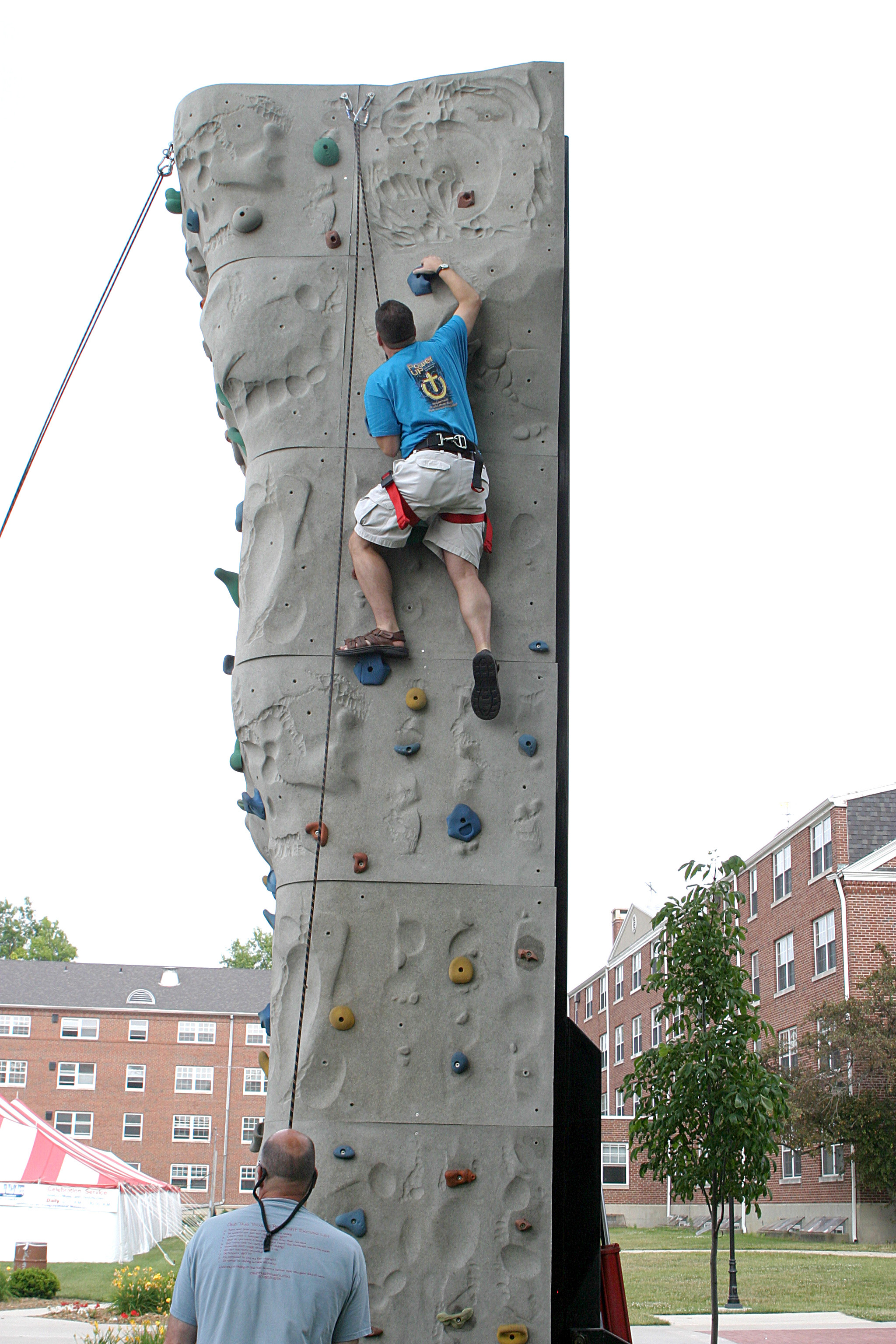6 Listening Practice Tips for my Seventh Language
 Until recently, I did not focus much on deliberate listening practice for the languages I learned in the past.
Until recently, I did not focus much on deliberate listening practice for the languages I learned in the past.
I said “deliberate”, because I must certainly have listened when I learned my first language growing up in Austria. We now know that babies spend most of their first year just listening and then trying out some basic sounds.
And anybody who has watched babies knows that they pick up the meaning of gestures, names of objects, etc., long before they can even pronounce their own name.
When I learned my second language, Dutch, while attending school in the Netherlands, I must also have listened to the language around me. Within three months, I was fully participating in my 4th grade class.
The same was probably the case when I picked up English in Canada as a pre-teen.
French, my fourth language, I learned in high school and college. While I remember the required “language labs”, I did not enjoy them because they consisted mostly of grammar drills. I speak it quite fluently by now, only because I often have to speak French when we visit my husband Peter's family.
Italian and Spanish I started to learn as an adult, just a few years ago. And so, I'm discovering that focused listening practice with audios and videos can make a huge difference.
The Beginner's Dilemma
You may have been learning a language for several weeks or months. You feel good about your ability to understand most of what you read or hear in your course lessons.
Perhaps you feel confident that you'll be able to order a meal in a restaurant or make yourself understood buying this or that, and even negotiating a price. Then you travel to a place where the language is spoken and are eager to jump into conversations with locals.
It doesn't take long for you to realize: The other persons may understand what YOU say, but you don't understand them, unless they speak slowly and with simple sentences. It's hard to have a real conversation that way.
Active Listening Practice in Rome, Italy
 During a five-month stay in Rome, Peter and I faced the “beginner's dilemma” certainly more than once. But we also noticed that our listening skills improved dramatically.
During a five-month stay in Rome, Peter and I faced the “beginner's dilemma” certainly more than once. But we also noticed that our listening skills improved dramatically.
In the evening we often watched TV. Even though we had prepared ourselves with Pimsleur audio courses before our arrival, the fast Italian on TV just came at us like a stream of rapid-fire sounds.
After a couple of weeks of daily listening practice, the stream started to slow down. I started to recognize some words, and could hear when the words started and ended. After a while, I also began to understand phrases and short sentences.
I certainly knew then that practicing listening is essential for understanding conversations. So now I'm making a deliberate effort to practice listening with Danish, my seventh language. Below are the six techniques that I use and recommend.
6 Techniques for Listening Practice
1. Do a lot of "listen and repeat" with words containing sounds that are difficult for you.
Babies are born with the ability to hear all sounds and they start learning their first (or second) language by just listening.
 By the time we're adults, we can hear mostly just the sounds of our own language or the languages that we hear in daily life. However with focused listening practice, adults can both learn to hear and to produce sounds that are not familiar. Sometimes it helps to understand how the sound is produced.
By the time we're adults, we can hear mostly just the sounds of our own language or the languages that we hear in daily life. However with focused listening practice, adults can both learn to hear and to produce sounds that are not familiar. Sometimes it helps to understand how the sound is produced.
Although Danish is a Germanic language there are certain sounds that don't exist in German, Dutch or English. A good example for Danish is the soft "d" sound, as in the words "mad" (food), "flød" (cream), "rød (red). At first the final soft "d" sounded like an "l" to me.
But while we were in Denmark a woman explained that it's actually like a very soft "th". She showed me that you can make the sound by putting your tongue against your front teeth. Once I knew that, I even heard the sound better. (Go figure.)
Some time ago we wrote a post about "Mouth Mechanics", and for many languages learning HOW to produce certain sounds is essential.
2. Pick a Level of difficulty that challenges you, but not too much.
A good guideline is that you'll want to understand at least 80% of what is said. In order to make progress, start out at a level that's right for you. Then keep building on the vocabulary and grammar patterns that you know.
 If an audio is too difficult and keeps sounding just like gibberish, it's easy to get discouraged and give up. Finding the right level is not always easy. It will take a little experimentation and trying out different sources.
If an audio is too difficult and keeps sounding just like gibberish, it's easy to get discouraged and give up. Finding the right level is not always easy. It will take a little experimentation and trying out different sources.
For some beginning learners, Slow German, Slow Spanish, etc. is helpful. But you should listen to natural speech as soon as you can.
For German, French, Spanish, and Italian, GamesforLanguage has natural-speed audios of each lesson, and Podcasts of each level. We recommend that you listen to the audio AFTER each lesson or level you completed and challenge yourself by listening to the podcast of the NEXT level.
Also, Steve Kaufmann's LingQ has many excellent audios of different length and difficulty.
3. Start with short audios and build up to longer ones.
 Practicing sounds and individual words, of course, is not enough. Speaking is a stream of sounds, and you need to practice by listening to words-in-a-stream.Start with (very) short audios. As you increase the difficulty and length of the clips, you'll also increase your vocabulary.
Practicing sounds and individual words, of course, is not enough. Speaking is a stream of sounds, and you need to practice by listening to words-in-a-stream.Start with (very) short audios. As you increase the difficulty and length of the clips, you'll also increase your vocabulary.
When you listen to full-length audio books, you'll hear the same vocabulary and grammar patterns come up again and again.
Each time they'll lodge a little deeper in your memory. A great source for foreign-language audio books is Audible. (And, yes, it's like putting money in your language bank...!)
4. Listen to topics that interest you.
Why would you want to listen to something that does not interest or concern you? ![]() You don't have to, once you have gone beyond the basics of a new language and have acquired enough vocabulary.
You don't have to, once you have gone beyond the basics of a new language and have acquired enough vocabulary.
There are two important reasons why finding topics that interest you is important: When you choose topics you know and like, you'll be motivated to listen often.
The familiar context will make it easier for you to guess the meaning of unknown words.
If you have many interests, your vocabulary and listening comprehension will grow exponentially.
5. Listen to audios more than once.
This works best, of course, with shorter audios or with passages from longer ones. I have found that every time I re-hear a clip, I understand more. Sometimes I "shadow" what is said, i.e. repeat what I heard just a second or so behind the speaker.
If there's an option, listen to a slow and a fast version of the audio. This is also a good practice technique. I like it because it makes me more keenly aware of the sounds, and how the isolated sounds (slow) become part of the natural sound stream (fast).
6. Listen to the audios WITH and WITHOUT reading the text.
When you listen without text, you're totally focused on sound and meaning. That's like being in a conversation where you can only hear what is being said.
 When you see the text as well, you are also aware of the spelling of words and how they look. For me, hearing and seeing the text helps me to remember the words and phrases.
When you see the text as well, you are also aware of the spelling of words and how they look. For me, hearing and seeing the text helps me to remember the words and phrases.
For languages that have phonetic spelling, seeing and hearing reinforce each other. I'm thinking of German, Spanish, Italian.
Danish, on the other hand, is phonetically quite challenging. So it takes extra effort to correlate sound to text. As English speakers, we often forget that the relationship between sound and spelling in English also has its challenges.
Understanding without Translating?
When I listen to a passage in French, or even Italian, I'm aware that I'm not translating at all. I just understand what is said. That's my goal also for Danish, but I'm not there yet.
I'm actually not sure whether that can be practiced or if you just automatically stop translating when the language becomes familiar enough. I'd be interested in the thoughts of anyone who has experienced the same.
Bio: Ulrike Rettig is the co-founder of GamesforLanguage.com. She is a lifelong language learner, growing up in Austria, the Netherlands, and Canada. You can follow her on Facebook, Twitter and Instagram, and leave any comments with contact or below.
